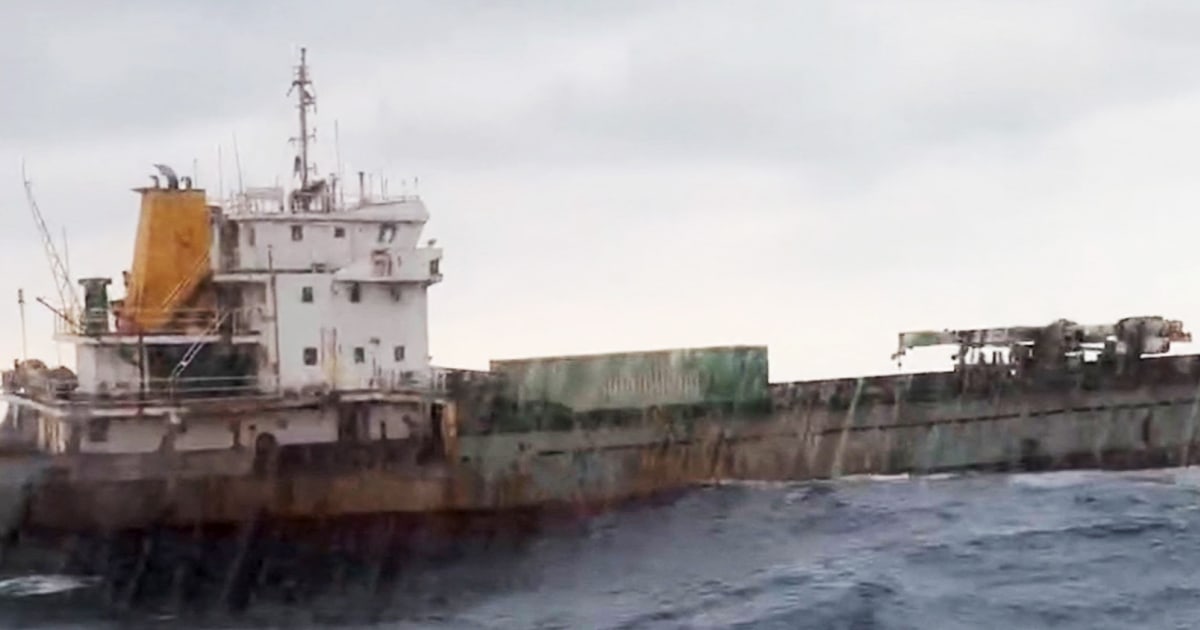Weather Woes: Taiwan’s Coast Guard Struggles to Investigate Undersea Cable Damage
The recent damage to an undersea cable off the coast of Taiwan has sparked significant concern, especially for the Taiwan Coast Guard. As they grapple with adverse weather conditions, the challenges in investigating this critical infrastructure become increasingly apparent. This situation not only raises alarms regarding communications but also poses risks to maritime security in a region that is no stranger to geopolitical tensions.
The Importance of Undersea Cables
Undersea cables are the backbone of global telecommunications, transmitting over 95% of international data traffic. They facilitate everything from everyday internet use to critical business operations and national security communications. Taiwan, situated at a strategic juncture in East Asia, relies heavily on these cables for connectivity with the rest of the world.
Any damage to these cables can lead to significant disruptions. In the case of Taiwan, the recent incident has affected not only local communications but also international connections, highlighting the fragility of this vital infrastructure.
Current Situation: Damage and Investigation Challenges
The damage to the undersea cable was reported amid a period of tumultuous weather, including high winds and rough seas. The Taiwan Coast Guard, tasked with investigating the incident, faces several hurdles:
- Adverse Weather Conditions: Heavy rainfall and strong winds have made it difficult for vessels to operate safely. The Coast Guard’s boats are equipped for many situations, but extreme weather poses a challenge.
- Technical Difficulties: Locating the precise point of damage in deep waters requires specialized equipment and expertise. The Coast Guard is working alongside telecommunications companies to deploy the necessary technology.
- Limited Resources: With multiple ongoing operations, the allocation of resources for this investigation is under scrutiny. The Coast Guard must balance its efforts across various areas, including search-and-rescue missions and other maritime security tasks.
Despite these challenges, the Coast Guard remains committed to conducting a thorough investigation. They are coordinating with international partners and experts to expedite the process and ensure the integrity of Taiwan’s maritime operations.
The Broader Impact on Communications
The damage to the undersea cable has raised concerns about the resilience of Taiwan’s communication networks. The implications of such disruptions can be far-reaching:
- Economic Consequences: Businesses that rely on stable internet connections may face interruptions, impacting productivity and revenue. This could be particularly detrimental for sectors such as finance, technology, and e-commerce.
- National Security: Secure communication channels are critical for national defense. Any sustained disruption could hinder the government’s ability to respond to threats and manage crisis situations efficiently.
- Public Confidence: Frequent interruptions in communication can lead to public unease. Citizens rely on stable communication systems for news and information, especially during emergencies.
As the investigation progresses, the Coast Guard and telecommunications agencies are working to restore services as swiftly as possible. They have mobilized teams to assess the situation and implement contingency plans to mitigate the impact on users.
Geopolitical Context: The Significance of Taiwan’s Waters
Taiwan’s geographical position makes it a focal point for regional security dynamics. The waters surrounding the island are not only crucial for commerce but also for military strategy. The recent undersea cable damage incident serves as a reminder of the vulnerabilities faced by nations in this contested maritime region.
China’s increasing assertiveness in the Taiwan Strait has heightened tensions, making the security of undersea cables and maritime routes even more critical. Disruptions in communication networks can be exploited by adversaries, further complicating the already delicate situation.
In this context, ensuring the security and resilience of undersea cables is paramount. The Taiwan Coast Guard plays an essential role in safeguarding these assets, but their efforts are often hampered by external factors, including adverse weather.
Future Considerations: Strengthening Resilience
Given the increasing frequency of extreme weather events attributed to climate change, Taiwan must consider proactive measures to enhance the resilience of its undersea cable networks. Some potential strategies include:
- Infrastructure Upgrades: Investing in more robust cable systems that are less susceptible to damage from environmental factors.
- Enhanced Monitoring: Utilizing advanced technology to monitor cable health and detect issues before they lead to significant damage.
- International Collaboration: Partnering with neighboring countries and global organizations to share best practices and resources for cable maintenance and repair.
By addressing these issues, Taiwan can better prepare for future incidents, ensuring that its communication networks remain stable and secure.
Conclusion: A Call for Preparedness
The Taiwan Coast Guard’s struggle to investigate the damage to the undersea cable amidst adverse weather conditions highlights the vulnerabilities that modern societies face in an interconnected world. As communication disruptions can have cascading effects on economies and security, it is crucial for Taiwan to prioritize the resilience of its undersea infrastructure.
While current challenges are significant, the situation also presents an opportunity for growth and improvement. By investing in technology, enhancing international cooperation, and prioritizing infrastructure resilience, Taiwan can emerge stronger and better prepared for future weather woes.
In conclusion, the commitment to safeguarding critical infrastructure is essential for maintaining stability and security in Taiwan and the broader region. The Taiwan Coast Guard’s ongoing efforts, despite the weather woes, are a testament to the dedication to facing these challenges head-on.
See more Future Tech Daily

